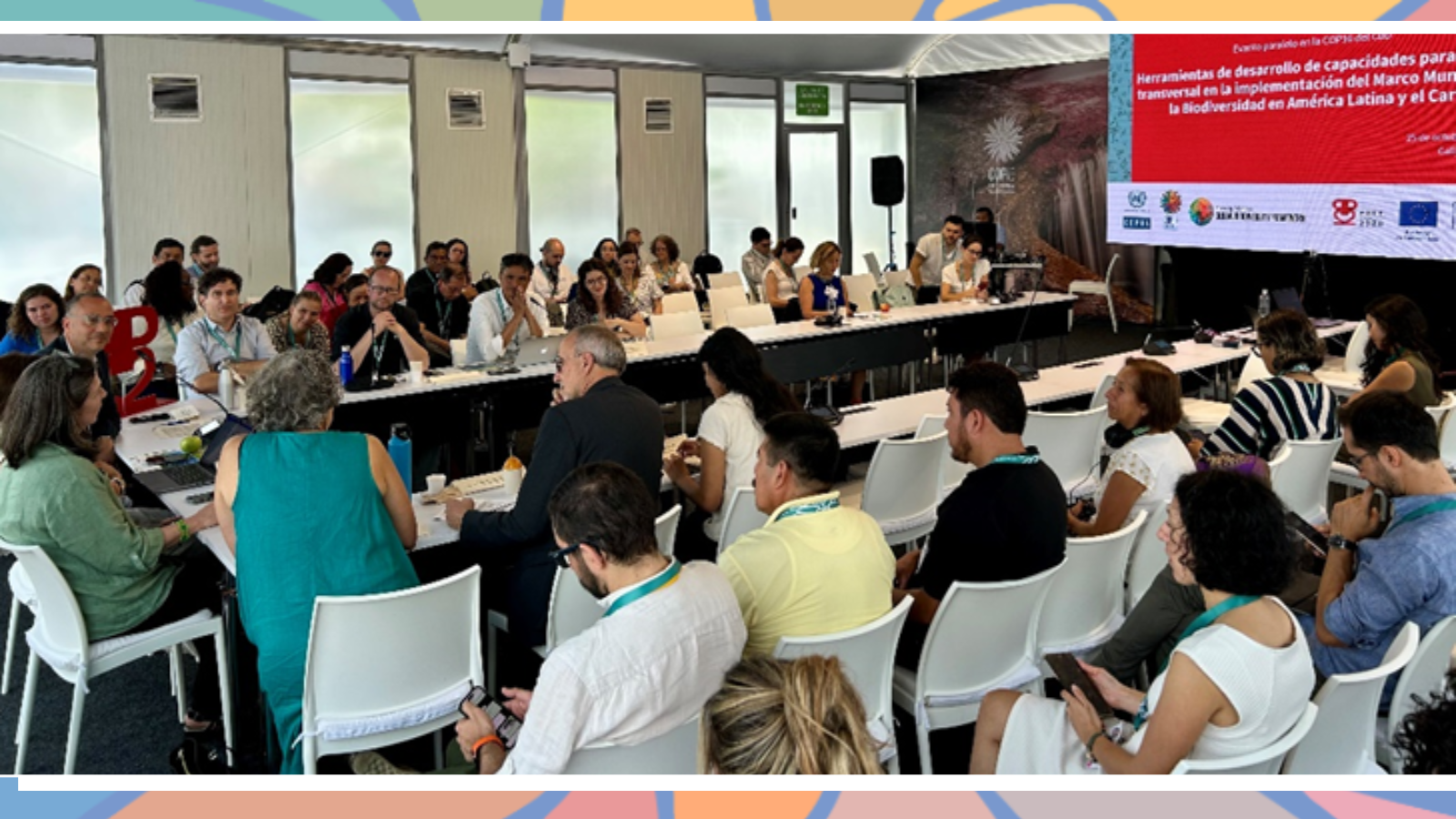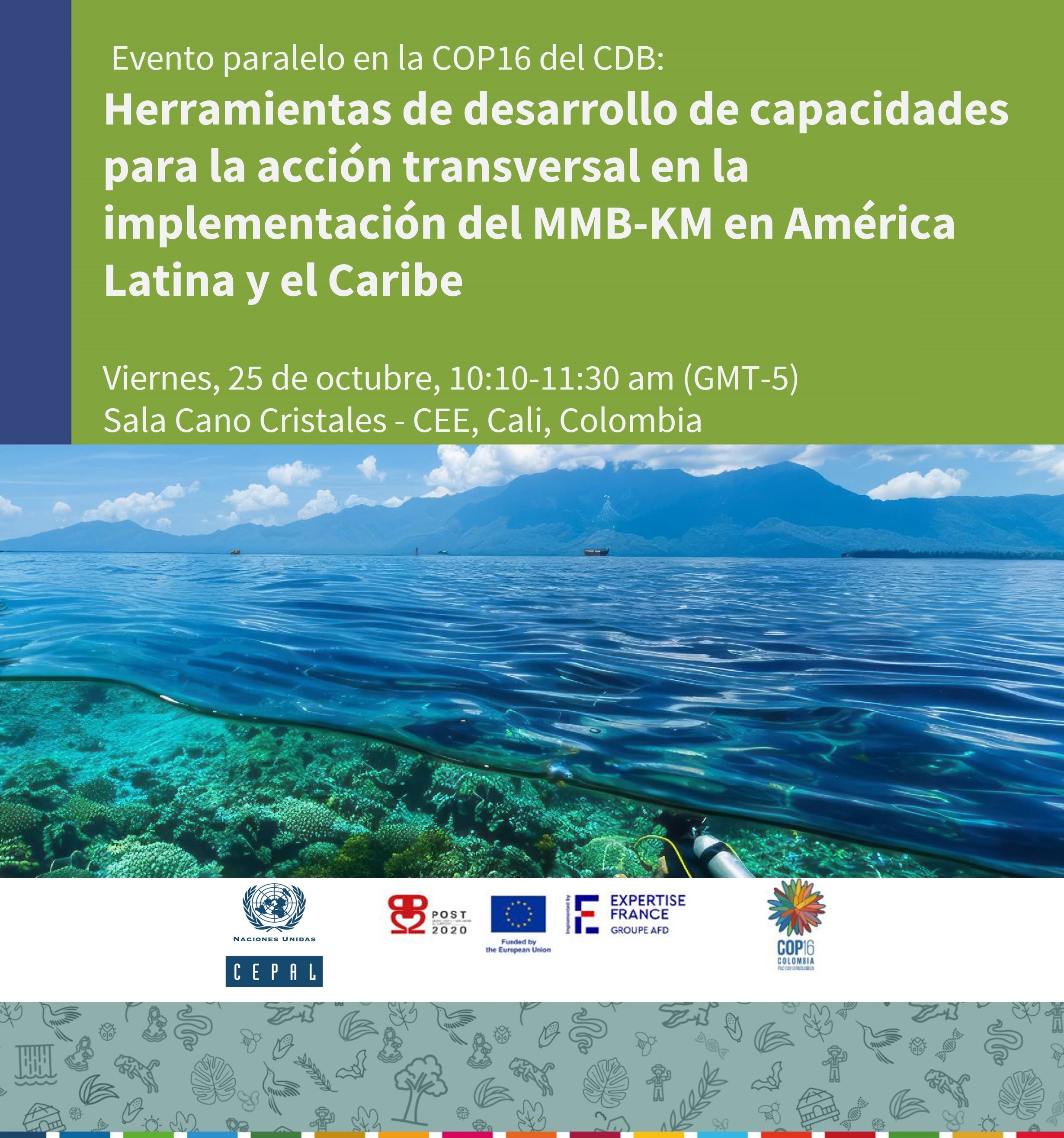New Biodiversity Toolbox presented at COP16 of the Convention on Biological Diversity in Cali, Colombia 2024
Work area(s)
Discover the innovative Toolbox for Biodiversity Integration, designed to support the Kunming-Montreal Framework in Latin America and the Caribbean!

The new library guide, titled "Toolbox for the Integration of Biodiversity in Development Planning in Latin America and the Caribbean" (available in Spanish only) is designed to facilitate the implementation of the Kunming-Montreal Global Biodiversity Framework. It was officially launched during the16th Conference of the Parties of the Convention on Biological Diversity (COP16) that was held from October 21 to November 1, 2024 in Cali, Colombia.
A Practical Resource for Biodiversity Action
"The toolbox is a dynamic resource offering an extensive range of knowledge products and empowers decision-makers to integrate biodiversity into public policies," says Marcia Isabel Tambutti Allende, Senior Research Assistant, Natural Resources Division, ECLAC.
The toolbox is aimed at public and private stakeholders involved in policy decision-making and planning at the national and local level. It is structured in five thematic sections corresponding to the themes of spatial planning target 1, climate change target 8, agriculture, fisheries and forestry target 10, biodiversity mainstreaming target 14, harmful and positive incentives target 18 of the Kunming-Montreal Global Biodiversity Framework. Each section of the toolbox focuses on methodological resources, guides and documents, links to information repositories and databases, and best practice cases from the region to ensure biodiversity mainstreaming across sectors and enhance effective planning. These resources offer expert perspectives from various fields, addressing both the challenges and solutions for incorporating biodiversity into sectoral planning.
Collaboration for Biodiversity
Developed thanks to a partnership between the United Nations Economic Commission for Latin America and the Caribbean (ECLAC) and the Post-2020 Biodiversity Framework – EU Support project’ funded by the EU and implemented by Expertise France for the implementation of the Post 2020 Biodiversity Framework; this toolbox represents a collective effort supported by experts from international organizations, academia, and civil society. With contributions from the ECLAC Hernán Santa Cruz Library, this initiative underscores our commitment to providing a comprehensive resource that supports communities and promotes sustainable development throughout the region.
“I see a crucial role for ECLAC's toolbox in enabling actors to design their national and subnational policies based on successful experiences and a regional dimension, to support more biodiversity-positive systems.” Thierry Dudermel, Team leader biodiversity, European Commission DG INTPA.
"Latin America and the Caribbean has an opportunity to transform their development model based on new consumption and production practices in key sectors. To advance in this direction, ECLAC's toolbox supports the process, recognizing the close link between biodiversity, climate change and development." Angela Penagos, Director of the ECLAC Office in Bogotá, Colombia.
ECLAC Participation at COP16
ECLAC was a key participant in discussions on policies for protecting biodiversity in Latin America and the Caribbean. ECLAC’s Executive Secretary, José Manuel Salazar-Xirinachs, played a leading role in several high-level events, highlighting the importance of biodiversity in Latin America and the Caribbean’s sustainable development.
At COP16, ECLAC addressed critical issues linking biodiversity conservation with sustainable development, highlighting the economic valuation of biodiversity and bioeconomy as pathways to sustainable growth, alongside innovative financing mechanisms like fiscal incentives and climate finance for conservation efforts. ECLAC also underscored the interconnectedness of biodiversity, poverty, presenting proposals for the inclusion of local and indigenous communities and environmental defenders. It also underscored the role of biodiversity in enhancing climate resilience and adaptation, while promoting the integration of biodiversity into public policies through innovative solutions aligned with the Kunming-Montreal Global Biodiversity Framework.
Read more about ECLAC participation at COP16 here.
Related content

Evento paralelo en la COP16 del CDB: Herramientas de desarrollo de capacidades para la acción transversal en la implementación del MMB-KM en América Latina y el Caribe
Evento reunirá a diversos actores para presentar recursos clave, lecciones y buenas prácticas que promueven una integración efectiva de la biodiversidad en los sectores productivos y las políticas…
Country(ies)
- Latin America and the Caribbean